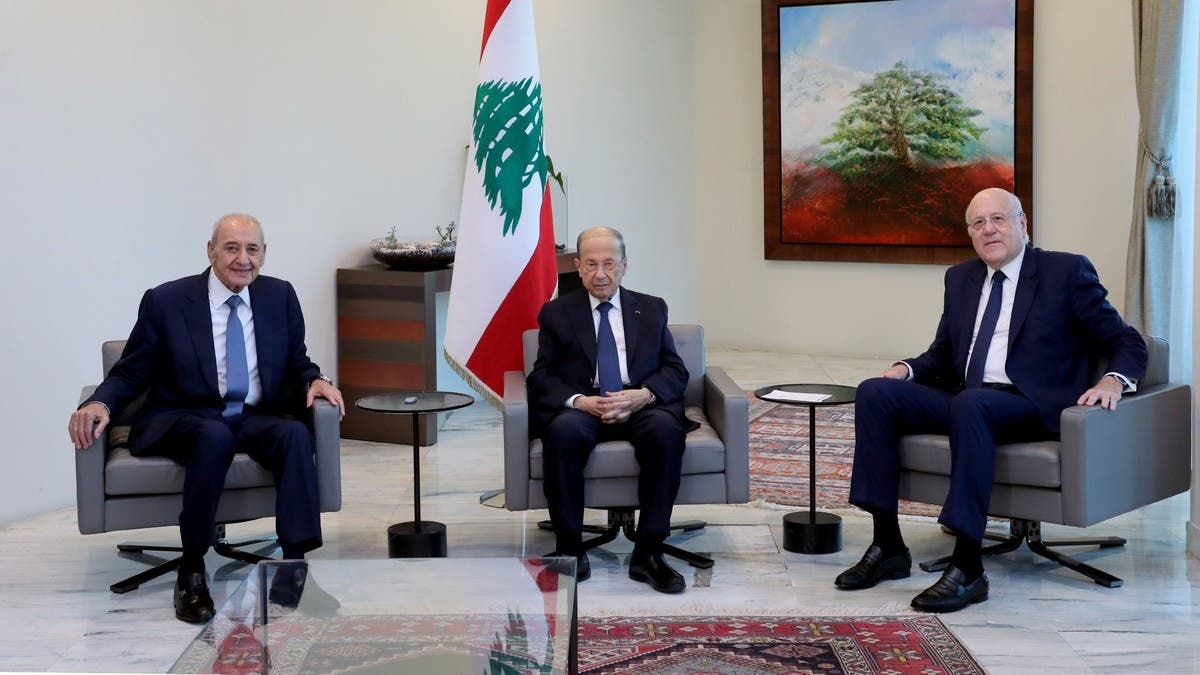The IMF has asked Lebanon to fulfil a string of pre-conditions before negotiating a bailout, four sources briefed on recent talks said, pressing for steps Beirut has long failed to deliver and compounding doubts over whether a rescue plan can be agreed.
An IMF deal is seen as the only way for Lebanon to recover from a financial meltdown that has plunged the country into its most destabilizing crisis since the 1975-90 civil war.
For the latest headlines, follow our Google News channel online or via the app.
The sources told Reuters IMF terms for initiating talks on a bailout included a framework for fiscal reform, revamping the insolvent banking sector and audits of the central bank and the loss-making state power company.
“They are saying before we have further discussions, come up with actions,” one of the sources said.
These also include implementing capital controls – something ruling parties have failed to agree since 2019 – and amending or lifting banking secrecy, the sources said. Several of the measures require parliamentary approval.
The IMF did not immediately respond to a request for comment, nor did the premier’s office or the finance ministry.
The IMF said at the end of the talks in February that Lebanon’s economic recovery program must include fiscal reforms that ensure debt sustainability, financial sector restructuring, electricity sector reform, anti-corruption work and “a credible monetary and exchange rate system.”
Prime Minister Najib Mikati’s government aims to agree an IMF staff-level agreement before a parliamentary election set for May – a goal that seems increasingly difficult to achieve.
“I fear you will have political parties and parliamentary blocs reluctant to take any decision on these sensitive matters, especially before elections,” said Alain Aoun, a lawmaker with the Free Patriotic Movement founded by President Michel Aoun.
‘No money’, ‘No hope’
The World Bank has accused Lebanon’s ruling class of orchestrating a “deliberate depression” amounting to one of the worst financial crashes since the 1850s. The collapse was caused by decades of state corruption, waste and mismanagement.
Many analysts doubt whether the same ruling elite will ever enact reforms that could threaten their vested interests.
“How do you want them to enhance accountability and lift banking secrecy when it will lead to them being held accountable? It’s impossible,” said Karim Daher, lawyer and lectures on public finance and taxes at Saint Joseph University.
Lebanon’s first attempt to negotiate with the IMF fell apart in 2020 over disagreements by politicians and banks over the scale of losses in the financial sector and how to share them.
While officials have now agreed a figure of some $70 billion, there is no approved plan on how to distribute the losses – one of the conditions for IMF negotiations. A major haircut on depositors will be highly sensitive.
In an apparent bid to meet IMF demands, the government approved an austerity budget this month that included tax hikes, but parliament has yet to start discussing it. Two political sources said deputies are hesitant to start debating politically explosive issues ahead of the May vote.
Among the prior IMF requirements is for the government to prepare a five-year budget to show how deficits would be reined in and economic growth ensured, three of the sources said.
It also wants Lebanon to chart a path to restructuring debt, including Eurobonds, on which it defaulted in 2020, and take steps to unify the current multiple exchange rate system.
Attempts to audit the central bank have stalled due to the central bank withholding information demanded by auditor Alvarez and Marsal. A central bank spokesperson told Reuters this month that the bank had approved handing over outstanding information.
Banking secrecy, once credited with boosting Lebanon’s economy but now seen by many as protecting ill-gotten gains, would need to be reformed to allow authorities to access information, two of the sources added.
Read more:
Lebanon condemns Russian invasion of Ukraine
Lebanon to get Spanish funds for railway revival plan: Minister
Lebanon thwarts three attacks by ISIS-linked militants

 World3 years ago
World3 years ago
 World3 years ago
World3 years ago
 Business11 months ago
Business11 months ago
 Entertainment7 years ago
Entertainment7 years ago
 World7 years ago
World7 years ago
 Entertainment7 years ago
Entertainment7 years ago






